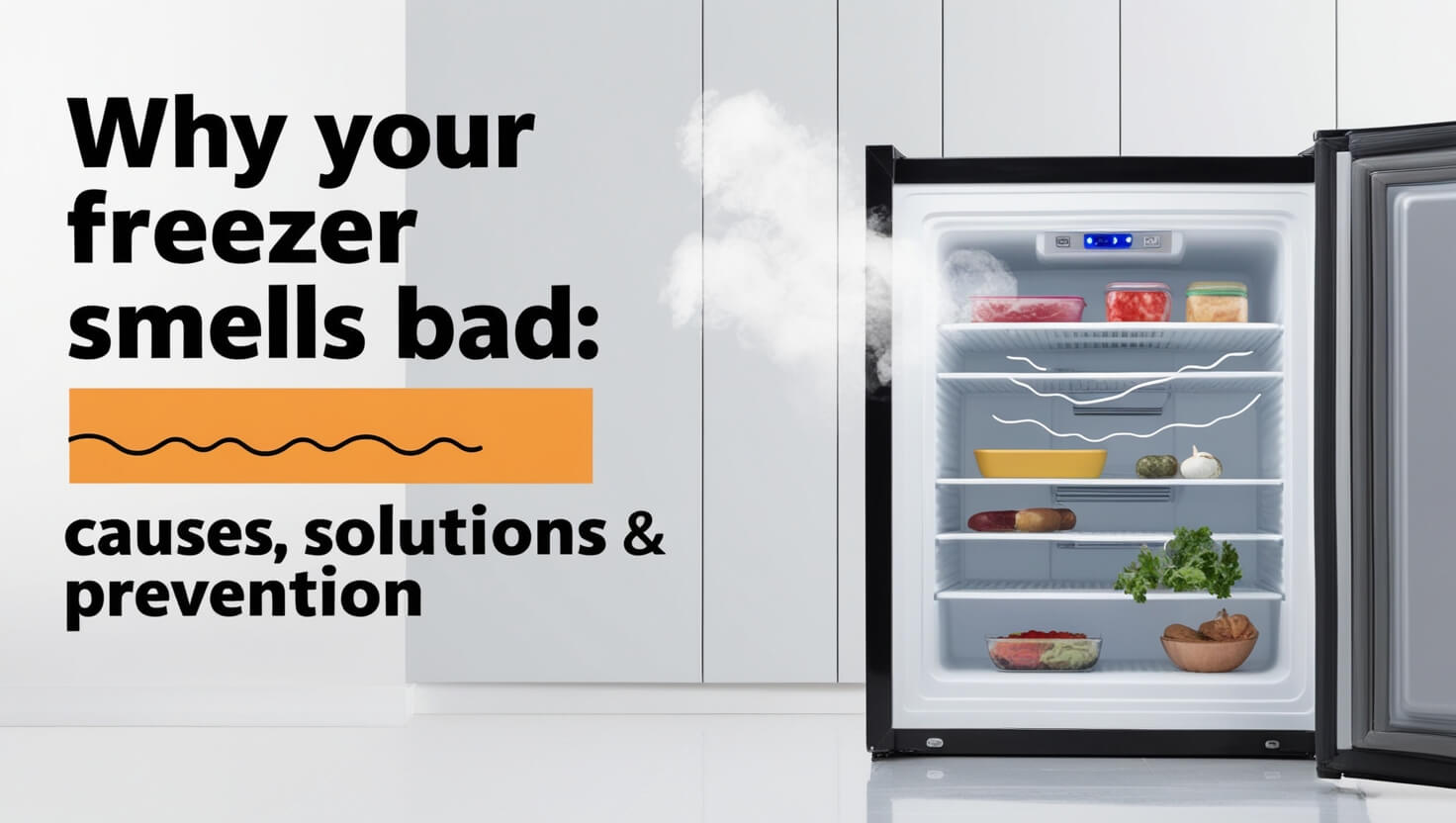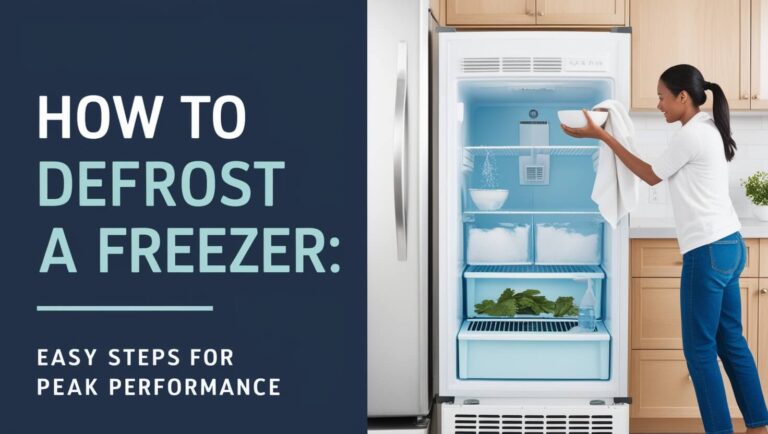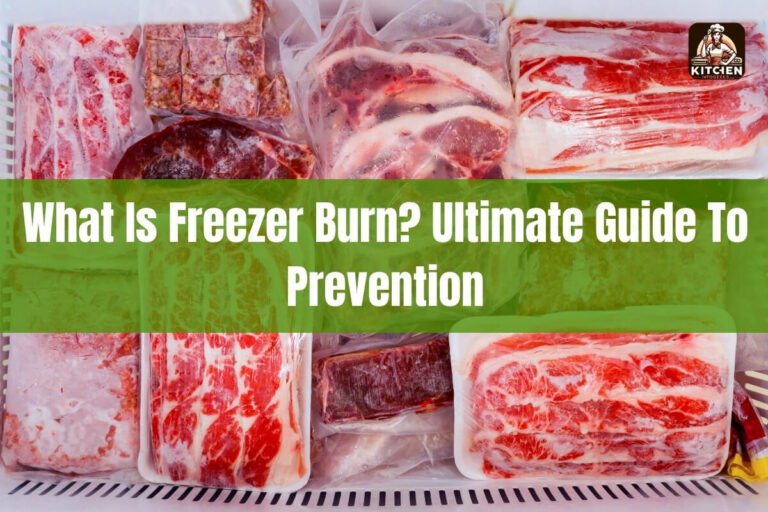
Is your freezer giving off an unpleasant odor? A smelly freezer is a common household problem that can stem from various sources, including spoiled food, spills, or even mechanical issues. In this guide, we’ll explore the reasons behind freezer odors, how to eliminate them, and ways to keep your freezer fresh in the long run.
Common Causes of Bad Freezer Smells
Freezer odors can turn a helpful appliance into a source of frustration. Let’s dive into why freezers sometimes develop bad smells and the science behind these unwelcome scents.
Several factors can lead to a smelly freezer:
- Spoiled food: Even frozen foods can go bad over time.
- Spills: Forgotten liquid spills can create odor-causing bacteria.
- Poor sealing: A faulty door seal lets warm air in, causing odor-producing condensation.
- Mold growth: Moisture buildup can lead to mold, which smells awful.
- Dirty coils: Dusty condenser coils can cause odors and reduce efficiency.
The Science Behind Freezer Odors
Believe it or not, there’s actual science behind why your freezer smells bad. Here’s what’s happening:
- Bacteria and mold: These microorganisms can survive in freezing temperatures, albeit slowly.
- Volatile organic compounds (VOCs): Foods release these smelly molecules as they break down.
- Concentration of odors: Freezing can concentrate flavors and smells, making them more noticeable.
Identifying the Source of Your Freezer’s Bad Smell
Before you can fix a smelly freezer, you need to find what’s causing the stink. Let’s look at some common culprits and less obvious sources.
Typical Culprits: Spoiled Food and Spills
Often, the source of freezer odors is right under your nose:
- Freezer-burned meat: It might not be spoiled, but it can smell funky.
- Forgotten vegetables: That bag of peas from last year? Yeah, it’s time to toss it.
- Ice cream spills: Dairy products can leave lasting odors if not cleaned promptly.
- Unsealed foods: Open containers let odors escape into the freezer air.
Less Obvious Sources of Freezer Odors
Sometimes, the smell isn’t coming from where you’d expect:
- Dirty ice maker: Mold can grow in the mechanisms, causing odors.
- Drain pan: A full or dirty drain pan under the freezer can create smells.
- Refrigerator odors: In combined units, fridge smells can migrate to the freezer.
- Old baking soda: If you use it as a deodorizer, it needs regular replacement.
Step-by-Step Guide to Cleaning a Smelly Freezer
Now that we’ve identified potential odor sources, let’s roll up our sleeves and get cleaning. Here’s how to tackle those freezer smells head-on.
Preparing Your Freezer for Cleaning
Before you start scrubbing, take these steps:
- Unplug the freezer or turn it off.
- Remove all food items, discarding anything spoiled or expired.
- Take out removable parts like shelves and drawers.
- Let the freezer defrost if there’s built-up ice.
Effective Cleaning Methods and Solutions
Time to clean! Here are some tried-and-true methods:
- Vinegar solution: Mix equal parts water and white vinegar in a spray bottle. Spray and wipe down all surfaces.
- Baking soda paste: Make a paste with baking soda and water. Use it to scrub tough stains and odors.
- Dish soap: For greasy spills, a solution of warm water and dish soap works wonders.
- Hot water rinse: After cleaning, rinse all surfaces with hot water to remove any lingering cleaning products.
Tackling Stubborn Odors
Some smells just won’t quit. For these tough cases, try:
- Leaving an open container of coffee grounds in the freezer overnight.
- Wiping surfaces with vanilla extract to neutralize odors.
- Using activated charcoal to absorb persistent smells.
- Running the empty freezer with a bowl of vinegar inside for a few hours.
Natural Remedies for Eliminating Freezer Odors
If you prefer natural solutions, there are plenty of options to freshen your freezer without harsh chemicals.
Baking Soda: The Classic Odor Absorber
Baking soda is a tried-and-true odor eliminator. Here’s how to use it:
- Place an open box in the freezer to absorb odors over time.
- Sprinkle baking soda on shelves and wipe clean after a few hours.
- Make a baking soda solution to clean the interior surfaces.
Other Natural Deodorizers for Your Freezer
Beyond baking soda, try these natural options:
- Fresh coffee grounds: They absorb odors and leave a pleasant scent.
- Lemon slices: The citrus helps neutralize bad smells.
- Essential oils: A few drops on a cotton ball can freshen the air.
- Apple cider vinegar: Like white vinegar, it’s great for cleaning and deodorizing.
When to Seek Professional Help for Freezer Odors
Sometimes, DIY methods aren’t enough. Know when it’s time to call in the experts.
Signs of Serious Freezer Issues
Watch out for these red flags:
- Persistent odors despite thorough cleaning
- Unusual noises coming from the freezer
- Inconsistent temperatures or failure to maintain coldness
- Visible mold or mildew growth inside the unit
What to Expect from a Professional Repair
If you need to call a pro, here’s what might happen:
- Diagnostic testing to identify the root cause
- Potential replacement of faulty parts like seals or compressors
- Deep cleaning of hard-to-reach areas
- Advice on preventing future issues
Preventing Future Freezer Odors
An ounce of prevention is worth a pound of cure, especially when it comes to freezer maintenance.
Best Practices for Freezer Maintenance
Keep your freezer in top shape with these tips:
- Clean spills immediately to prevent odor-causing bacteria growth.
- Defrost regularly if your freezer isn’t frost-free.
- Check and clean the door seals every few months.
- Vacuum the condenser coils at least twice a year.
- Keep the freezer at 0°F (-18°C) or below to inhibit bacterial growth.
Proper Food Storage Techniques
How you store food can make a big difference:
- Use airtight containers or freezer bags to prevent odor transfer.
- Label foods with dates to track freshness.
- Wrap strong-smelling foods like fish in aluminum foil before freezing.
- Don’t overpack the freezer; allow air to circulate.
- Rotate your frozen goods, using older items first.
The Impact of Freezer Odors on Food Quality and Safety
A smelly freezer isn’t just unpleasant – it can affect your food and health.
How Bad Smells Affect Frozen Foods
Odors can have surprising effects on your frozen goods:
- Absorption of odors by foods, especially those high in fat
- Altered taste and texture of affected foods
- Potential contamination from bacteria or mold spores
Health Risks Associated with Smelly Freezers
Don’t ignore that funky freezer smell:
- Increased risk of foodborne illness from contaminated foods
- Possible allergic reactions to mold spores
- Ingestion of harmful bacteria that survive freezing temperatures
Frequently Asked Questions About Smelly Freezers
Let’s address some common concerns about freezer odors.
Can I use bleach to clean my freezer?
It’s not recommended. Bleach can damage the freezer’s interior and leave behind its own strong odor.
How often should I clean my freezer?
Aim for a thorough cleaning every 3-4 months, with spot cleaning as needed.
Why does my freezer smell bad even when it’s clean?
The odor might be coming from the drain pan, ice maker, or even the insulation if it’s very old.
Can freezer odors make me sick?
While unlikely, strong odors could indicate the presence of mold or bacteria, which can potentially cause illness.
How long do odors last in a freezer?
Without intervention, odors can persist indefinitely. Active odor removal and prevention are key.
Conclusion
A smelly freezer doesn’t have to be a permanent problem. By understanding the causes of freezer odors, taking swift action to clean and deodorize, and implementing preventive measures, you can keep your freezer fresh and your frozen foods safe. Regular maintenance and proper food storage go a long way in preventing future odor issues. Remember, a clean freezer is not just about pleasant smells – it’s an important part of maintaining food quality and protecting your health. With the tips and techniques covered in this guide, you’re well-equipped to tackle any freezer odor challenges that come your way. Here’s to fresher, odor-free freezers and better-tasting frozen foods!






